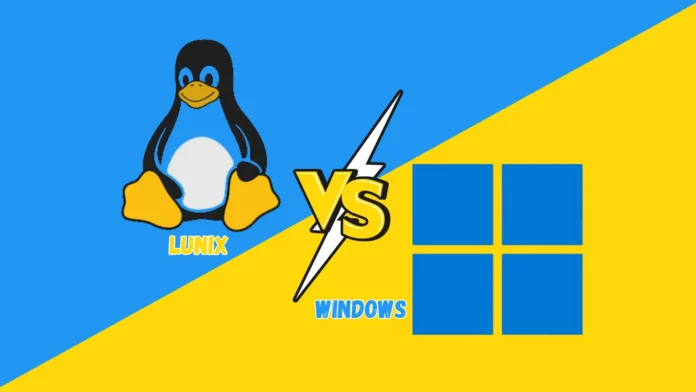Introduction
Linux vs Windows Choosing the right operating system is a critical decision, whether you’re setting up a personal computer, managing a server, or building an enterprise solution. Two of the most popular options are Linux and Windows. Each has its own strengths, weaknesses, and ideal use cases. In this article, we’ll delve into their key differences to help you decide which operating system suits your needs best.
1. Introduction to Linux and Windows
Linux and Windows dominate the operating system market, but they cater to different audiences and purposes. Linux, an open-source platform, is highly customizable and free. Windows, developed by Microsoft, is known for its user-friendly interface and widespread compatibility.
2. Ease of Use
Windows has long been celebrated for its intuitive design, making it a go-to choice for beginners. Its graphical user interface (GUI) is straightforward, and most users are familiar with its layout. On the other hand, Linux can be daunting for newcomers, particularly because it often requires the use of command-line instructions. However, modern distributions like Ubuntu and Linux Mint offer GUIs that rival Windows in accessibility.
3. Cost and Licensing
One of Linux’s most significant advantages is its cost. Being open-source, most Linux distributions are free to use, and there are no licensing fees. In contrast, Windows requires a paid license, which can be expensive for individuals and businesses alike. For those on a tight budget, Linux is often the preferred choice.
4. Security Features
Security is a major concern in today’s digital world. Linux is often considered more secure than Windows due to its open-source nature, allowing a community of developers to identify and fix vulnerabilities quickly. Moreover, Linux’s user permission system makes it harder for malware to gain access. Windows, while improving its security over the years, remains a primary target for malware due to its widespread use.
5. Software and Application Support
Windows has an edge when it comes to software compatibility. Most commercial software and games are designed with Windows in mind. Linux, however, offers a vast repository of free, open-source applications but struggles with proprietary software compatibility. For example, professionals using Adobe Creative Suite or certain games may find Linux unsuitable without workarounds like Wine or virtual machines.
6. Customization and Flexibility
If customization is your priority, Linux is unparalleled. Users can modify virtually every aspect of the operating system to fit their needs. From choosing the desktop environment to configuring the kernel, Linux empowers users to take control. Windows, while offering some customization options, is far more restricted in comparison.
7. Performance and Resource Usage
Linux is known for its efficiency and low resource usage, making it an excellent choice for older hardware or resource-intensive tasks like servers. Windows, while generally optimized for modern machines, tends to require more resources, especially with frequent updates and background processes.
8. Community and Support
Linux boasts a vibrant community of developers and users ready to offer support through forums, wikis, and tutorials. However, this support is often informal and may require technical knowledge. Windows users, on the other hand, benefit from professional customer support provided by Microsoft, as well as an abundance of third-party resources.
9. Ideal Use Cases
Understanding your specific needs is crucial in choosing between Linux and Windows:
- Linux: Ideal for developers, system administrators, and those seeking a cost-effective, secure, and customizable solution.
- Windows: Best for casual users, gamers, and professionals reliant on proprietary software.
10. Final Verdict
Both Linux and Windows have their unique advantages and limitations. Linux excels in security, cost, and customization, while Windows shines in user-friendliness and software compatibility. Your choice ultimately depends on your specific needs and technical expertise.
Conclusion
Deciding between Linux and Windows doesn’t have to be overwhelming. Evaluate your priorities—whether it’s cost, security, software, or ease of use—and choose the operating system that aligns with your goals. With the right choice, you’ll unlock the full potential of your computer, whether you’re a novice user or a seasoned professional.
Tags: Linux vs Windows, Operating System Comparison, Linux Advantages, Windows Features



























